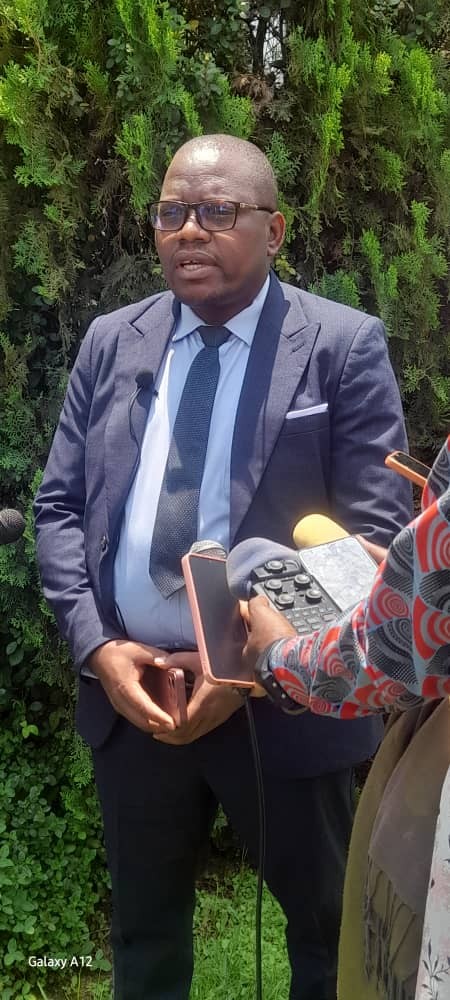BUJUMBURA, February 27th (ABP) – At the awareness-raising workshop for players in the agri-food, hotel and catering sectors, organised by the support project for the Sub-regional Centre of Excellence in Nutritional Sciences (EANSI) in partnership with the BBN and the CFCIB, the spokesperson for the Ministry of Trade, Transport, Industry and Tourism, Onesime Niyukuri, gave a presentation on the main challenges faced by products made in Burundi.
In his presentation, Niyukuri pointed out that ‘made in Burundi’ is a brand. That brand has enabled countries such as China, Germany, Italy and Japan to develop. To achieve that brand, you first need branding, which is the construction of an image. That requires a great deal of resources, knowledge and requirements in terms of quality and international standards and quality.
On the subject of challenges, he indicated that among the major challenges faced by products manufactured in Burundi is the lack of sufficient and good quality transport infrastructure to ensure proper road, lake and air transport. For that reason, he believes that a great deal of effort is needed to overcome the challenges in the transport infrastructure sector.
He also spoke of the challenges associated with access to credit and financing. According to him, products “made in Burundi” can be found on the local market, but also have access to regional and international markets.
However, there is the problem of producing sufficient quantities on a regular basis. “What often happens is that an economic operator can place his products on the international market, but on the second request encounters difficulties in honouring his commitments, either because there is no production or because his products do not meet the standards required to access those markets,” explained Niyukuri.
As a solution, the spokesperson for the Ministry of Trade is proposing a large number of awareness-raising and training sessions for economic operators to explain the requirements of international trade. Financial institutions need to support small and medium-sized businesses so that they can produce in sufficient quantities and learn how to process products that are accessible on the international market.
The institutions responsible for promoting Burundi’s image, in particular the Burundi Development Agency (ADB), must redouble their efforts to promote and market products made in Burundi so that they have easy access to regional and international markets.
He also suggested that those institutions negotiate agreements in favour of Burundian economic operators in order to gain access to the various markets.
For his part, the PA-EANSI project coordinator, Melance Ntunzwenimana, praised the way in which players in the agri-food and hotel sectors want to move away from old methods and embrace modernity, in terms of producing products that meet standards and quality requirements.
He asked them to put into practice what they had heard and learned from the various experts who gave presentations at the meeting.
He called on the government to get involved, from the bottom up, in respecting standards and producing quality products, which will help to build prosperous and sustainable Burundian businesses.
Éloge Niyomwungere, representing Best Food Solution, who took part in the meeting, said he had gained a great deal. According to him, the various themes developed were eye-opening for economic operators working in the agri-food sector. He explained that they concentrate a lot on processing, whereas the experts have just shown them that food manufacturers, to produce quality products, must consider the whole chain. In other words, from fork to fork, from the production of raw materials to the finished product, respecting hygiene rules at all levels. Henceforth, he is committed to producing in compliance with standards and quality in order to have easy access to regional and international markets, explaining that selling products only locally is a loss for entrepreneurs, but also for the country, because foreign currency cannot be earned.

